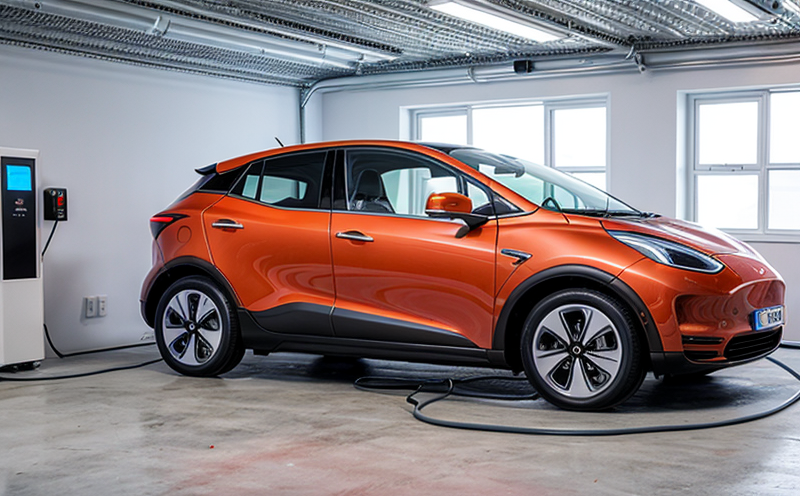Thermal Stress Testing for Electric Mobility Devices
The Ultimate Shield for Electric Mobility Devices Thermal Stress Testing
In the rapidly evolving world of electric mobility, innovation and efficiency are paramount. As manufacturers strive to create vehicles that not only boast impressive performance but also prioritize sustainability and safety, they must navigate a complex landscape of challenges. One such challenge lies in ensuring the reliability and durability of their products under various operating conditions.
Thats where Thermal Stress Testing for Electric Mobility Devices comes into play a specialized laboratory service designed to simulate extreme temperature fluctuations and evaluate the impact on electric vehicles (EVs) and other mobility devices. By leveraging this rigorous testing method, manufacturers can guarantee that their products are ready for real-world use, meeting customer expectations while maintaining a competitive edge.
What is Thermal Stress Testing?
Thermal stress testing, also known as environmental testing or thermal cycle testing, exposes Electric Mobility Devices to extreme temperatures in a controlled laboratory environment. This involves subjecting the device to a predetermined sequence of temperature fluctuations typically from -40C to 80C (or higher) while monitoring its performance and detecting any potential issues.
Why is Thermal Stress Testing Essential for Businesses?
Thermal stress testing has become a critical component in ensuring the reliability, efficiency, and overall quality of Electric Mobility Devices. By investing in this service, manufacturers can
Enhance Product Reliability Identify potential weaknesses and faults that may not be apparent through traditional testing methods.
Meet Industry Standards and Regulations Comply with global standards for electric vehicles (e.g., IEC 60068-2-14) and regulations governing environmental exposure.
Reduce Warranty Claims and Maintenance Costs Minimize the likelihood of premature failures, associated repair costs, and lost revenue due to downtime.
Improve Consumer Satisfaction Offer products that consistently perform well under various operating conditions, fostering brand loyalty and reputation.
Stay Ahead of Competition Differentiate products by demonstrating a commitment to quality and customer satisfaction through rigorous testing.
Benefits of Thermal Stress Testing for Electric Mobility Devices
Here are some key advantages of incorporating thermal stress testing into your product development process
Early Fault Detection Uncover potential issues before they become costly problems in the field.
Optimized Design and Performance Identify areas where components can be improved or upgraded to enhance overall performance and efficiency.
Environmental Adaptability Validate devices ability to operate effectively under extreme temperatures, ensuring seamless integration with varying climates and environments.
Regulatory Compliance Stay ahead of industry standards and regulations governing thermal exposure for electric mobility devices.
The Eurolab Advantage
At Eurolab, our team of experienced experts employs cutting-edge technology and state-of-the-art facilities to provide comprehensive thermal stress testing services. With a focus on delivering high-quality results while maintaining confidentiality and flexibility, we cater to the specific needs of each client
Customized Testing Solutions Develop tailored testing protocols to address individual product requirements and constraints.
Sophisticated Equipment and Facilities Leverage advanced climate chambers, temperature control systems, and data analysis tools for accurate and reliable test results.
Experienced Professionals Collaborate with skilled technicians and engineers who understand the intricacies of electric mobility devices.
Frequently Asked Questions
Weve compiled a list of answers to address common inquiries about thermal stress testing
Q What types of Electric Mobility Devices are suitable for thermal stress testing?
A All electric vehicles, including passenger cars, commercial vehicles, buses, motorcycles, and other two-wheelers, as well as e-bikes and scooters.
Q How long does a typical thermal stress testing cycle last?
A The duration varies depending on the specific test requirements and device characteristics. Cycles can range from several hours to days or even weeks.
Q What are the primary factors influencing the choice of temperature ranges for testing?
A Temperature extremes, such as ambient temperatures in various climates (e.g., Arctic, tropical), high-temperature operation, and extreme cold storage conditions.
Q Can thermal stress testing be combined with other environmental tests (e.g., vibration, humidity)?
A Yes, our services can incorporate multiple environmental stresses to simulate real-world operating conditions and evaluate the devices overall performance.
Conclusion
In todays fast-paced electric mobility landscape, manufacturers must ensure that their products meet the highest standards of reliability, efficiency, and safety. Thermal stress testing is a critical component in achieving these goals, enabling businesses to validate product performance under extreme temperatures while minimizing potential issues and costs.
By partnering with Eurolab for thermal stress testing services, you can
Enhance your products reputation
Reduce maintenance and repair costs
Stay compliant with industry standards and regulations
Dont let temperature extremes compromise your Electric Mobility Devices performance. Choose Eurolabs comprehensive thermal stress testing solutions to safeguard your products reliability and ensure customer satisfaction.
At Eurolab, were committed to delivering the highest quality services that meet your unique needs. Trust us to shield your electric mobility devices from the challenges of extreme temperatures, empowering you to build a better future for sustainable transportation.




